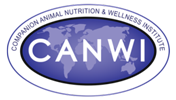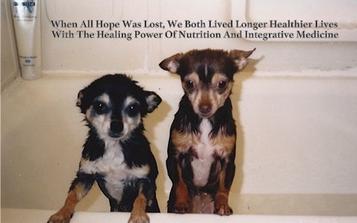CANWI’S Backstory. Two veterinarians, Drs. Karen Becker and Donna Raditic, recognized the need to provide education and basic nutrition research to the pet vested community and created CANWI, a nonprofit organization whose long-term goal is to be a reliable source of companion animal information and uncover more answers about basic nutrition that’s currently lacking in veterinary medicine.
CANWI Beginning Research. From the start, CANWI has been hard at work. Thanks to our supporters, we have initiated several ambitious research projects related to the effects of pets consuming heat processed foods. Our Scientific Committee is comprised of nationally recognized scientists and oversees and monitors our research initiatives from start to finish.
The Whys of What We Do.
Many pet lovers are scooping processed dry food into a bowl or opening the same canned food every day.
- Is this really the best nutrition we can offer our companions?
- Why do human nutritionists tell us to eat LESS processed foods and more fresh foods, but the advice coming from the veterinary community is the exact opposite?
- What are the long-term health consequences of feeding our family members mostly ultra-processed foods for a lifetime?
The scientific community has known for a long time that heating proteins, fats and carbohydrates to high temperatures produces unwanted heat-induced, chemical reactions in food called Maillard Reaction Products (MRPs). One of the most common types of MRPs produced in pet food are Advanced Glycation End-products (AGEs), the result of cooking carbohydrates with proteins. We know this reaction occurs when manufacturing the vast majority of ultra-processed pet foods, but no one has studied the amount of AGEs produced when different cooking techniques are implemented.
What We Have Done So Far.
- CANWI launched The Advanced Glycation End Products (AGEs) Dietary Study, the first of its kind in veterinary nutrition research.
- AGEs have been associated with chronic diseases, immune system imbalances, premature aging and even cancer.
- Preliminary data estimates some pet foods may contain over 122 times the AGEs found in processed human foods!
- We assembled a team of veterinary nutritionists, food scientists, identified specialized labs, several Veterinary Colleges and a human medical school to collaboratively work on this ambitious research. Our goal is to examine the role of dietary AGEs in pet foods and compare feeding processed pet foods to fresh food and raw pet diets, but we’re just getting started.
- Project Molly. Because of your donations, we’ve also raised funds to expand the AGE Study to include cats. Project Molly is a two-year study looking at healthy and diabetic cats. Research in cats, especially their nutritional needs and diseases, is scarce despite cat ownership exceeding dog ownership in the United States. We want to be sure you are serving up the best nutrition into that bowl every single day.
- One Health Collaborative Research.. We have begun partnering with human AGE research specialists to incorporate One Health research concepts into our mission. One Health is an approach to collaborative research between the human and veterinary research community that allows for the entire Animal Kingdom to benefit from research being done in the human or veterinary realm; the health of humans is intimately connected to the health of animals, and vice versa.
“Why aren’t our companion animals living longer?”
We believe that through our own independent research, we can answer the question, but most importantly, provide paradigm-shifting information that shifts how we nourish our animals for healthier, longer life, based on the groundbreaking research we are conducting.
Our team continues to work tirelessly on developing new research and education programs that will result in meaningful change. Hopefully that change will lead to a brighter, healthier future for our pets.
That’s our story, but we can’t do all we’ve set out to do without your support. Thank you to everyone that continues to support this mission with a tax-deductible donation; it’s how we intend to shift the health of the animals we all care so deeply about.
Dr. Donna and Dr. Karen

